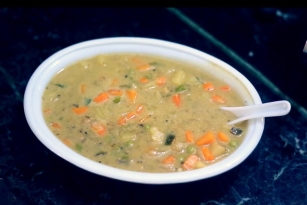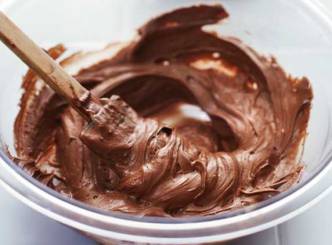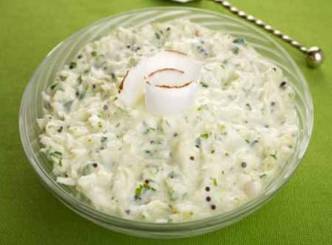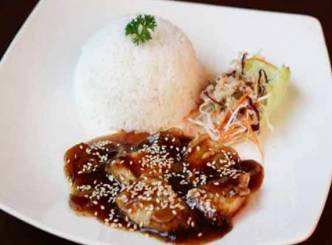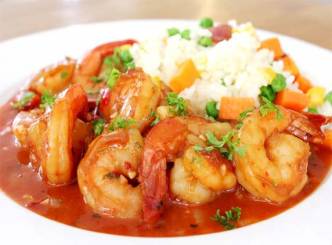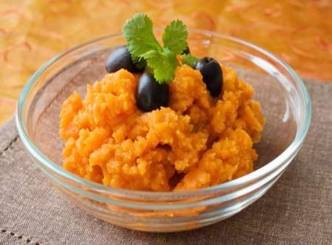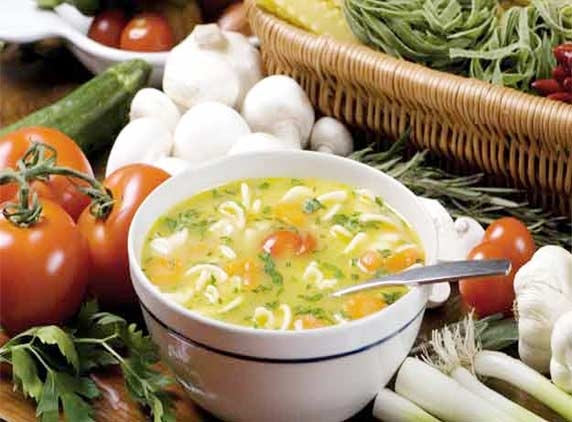
Recovering from tuberculosis? Eat these foods that are packed with all the nutrition you require
There was a time when tuberculosis [TB] was considered fatal. However, today, barring a few cases, TB is completely curable. The key in defeating the disease is timely medication and a wholesome nutritious diet.
How diet helps
TB is usually accompanied with fever, loss of appetite, drastic weight loss and fatigue. A healthy diet with the correct balance of nutrients checks the sudden drop in weight. Here’s how to plan your diet in case of TB.
During acute stages of TB, when there’s high fever, consume a fluid diet packed with protein and energy. Drink clear fluids such as fruit juices with added sugar [preferably freshly extracted apple or grape juice], thin dals, vegetable soups, rice starch, watery porridges and khichdis made soup style.
As your condition improves, gradually introduce soft foods and subsequently switch to a regular diet comprising two servings each of vegetables and fruits, 3 - 4 servings of whole grains, 2 - 3 servings of lentils and low-fat milk. Non-vegetarians can also include eggs and fish in the diet.
Ensure that your intake of fat doesn’t exceed 20 - 25 per cent of the total calories consumed.
Limit your sodium intake to less than 2200mg/day and maintain cholesterol levels below 200 - 250mg per day.
Stay away from alcohol.
Eat small and frequent meals.
Ensure that you eat only well-cooked, lightly spiced and easy-to-digest meals.
Follow this basic rule during recovery phase: all meals must include cereals coupled with lean protein sources.
What you should eat
Whole grains: Whole grains provide the body with energy and help regain the lost kilos. Consume at least 3 - 4 servings of whole grains such as whole wheat, jowar, nachni or ragi, brown rice, millets and corn every day. Eating starchy foods such as wheat pastas, jacket potatoes, multigrain cereals and crackers help improve your nutritional status. These are also rich sources of fibre, vitamin B complex, magnesium and iron, all of which are important for recovery. Cut down the intake of products made from nutrient-deficient white flour [maida] such as white bread, cakes, cookies and noodles, and switch to their whole grain variants.
Alfalfa sprouts: Green foods such as alfalfa, barley grass, wheatgrass and chlorella are rich in nutrients that help detoxify the body and build immunity. Sprouted alfalfa seeds contain large amounts of phytochemicals and minerals like zinc, magnesium and calcium. The tiny sprouts are also known to possess anti-inflammatory and immunity boosting properties. They are good vegetarian sources of proteins and iron. Sprinkle them over salads, soups or add them to sandwiches along with other sprouted beans.
Curd: Curd and buttermilk too are excellent sources of protein. So are other dairy products like milk. Curd helps rebuild the protein reserves whilst arming the body with calcium, vitamin D and plenty of good bacteria. Consume 2 - 3 servings of milk products every day. If you are lactose intolerant, you may opt for soymilk, tofu, nuts, sesame, pumpkin and flax seeds for your protein and calcium requirement.
Pomegranates: Pomegranates contain much more antioxidant properties than green tea or red wine and are being studied extensively for their role in fighting dreaded diseases like TB and cancer. Owing to its rich vitamin A, C and natural sugar content, a glass of pomegranate juice makes for an amazing energy-packed drink for TB patients. Yet another reason to eat pomegranates is its high iron and fibre content.
Fish: Adequate intake of good quality protein sources such as fish and eggs help to deal with protein deficiencies, which are inevitable when ailing from TB. Choosing leaner proteins such as fish, eggs, chicken and pulses are recommended as they are low in saturated fat content. Include fish, especially the cold water/saltwater fish such as mackerel and sardines 2 - 3 times in a week for their rich iron and omega-3 fatty acids profile.
Nuts: A storehouse of proteins and nutrients, nuts qualify as foods that speedup recovery and rev up the immunity. The vitamins and minerals that are particularly important for alleviating malnutrition and fatigue such as vitamin A, D, E, iron, calcium and healthy fats are abundant in nuts. The protective antioxidants in nuts destroy the destructive free radicals. The proteins in them help repair tissues and the MUFA favours a healthy lipid profile in TB patients. Being naturally high in calories, only a handful of nuts like walnuts, almonds, peanuts and pistachios are enough to fight exhaustion and pump up energy.
Veggies: It’s best to introduce them gradually into the diet and that too through broths or soups and later as cooked vegetables. The fibre helps to set the digestive functions in order by initiating better bowel movement. Eat at least three servings of vegetables a day, especially spinach, tomatoes and carrots as this facilitates the body’s recovery process. Carrots, in particular, improve the body’s ability to fight the TB infection and cope with the side-effects of heavy doses of antibiotic treatment.
Dates [khajoor or chhuaara]: These help gain weight and improve haemoglobin levels. Dates contain good amounts of iron, calcium, B vitamins and essential fatty acids. Drinking a glass of warm milk with soaked dates at bedtime reduces phlegm, provides strength and ensures good sleep.
Guava and amla: Guava and amla both are rich in vitamin C [guavas have four times more vitamin C than oranges], potassium, fibre and antioxidants. You can eat these fruits as snacks, in the form of juices or as chutneys. Complementary medicine suggests eating tender guava leaves to treat digestive troubles and gum diseases. Starting the day with fresh amla juice mixed with honey facilitates elimination of toxins from the body.
Besides these fruits, bananas, custard apple and pineapple are also found favourable while recovering from TB.
Garlic: The medicinal properties of garlic are attributed to the presence of two main substances, allicin and diallyl sulphides. Both these compounds are volatile, and start to degrade within minutes of exposing them to cooking or even microwaving. So, the best way to derive benefits from garlic is to eat it raw, after crushing or by adding it to cooked preparations just before serving. Garlic helps improve blood circulation, and fight free radical activity. It also works as a colon cleanser, liver healer and immunity booster. Those who are repulsed by the aftertaste of garlic may opt for garlic supplements under medical supervision.
In addition to a good diet, rest and positive attitude hasten recovery.



